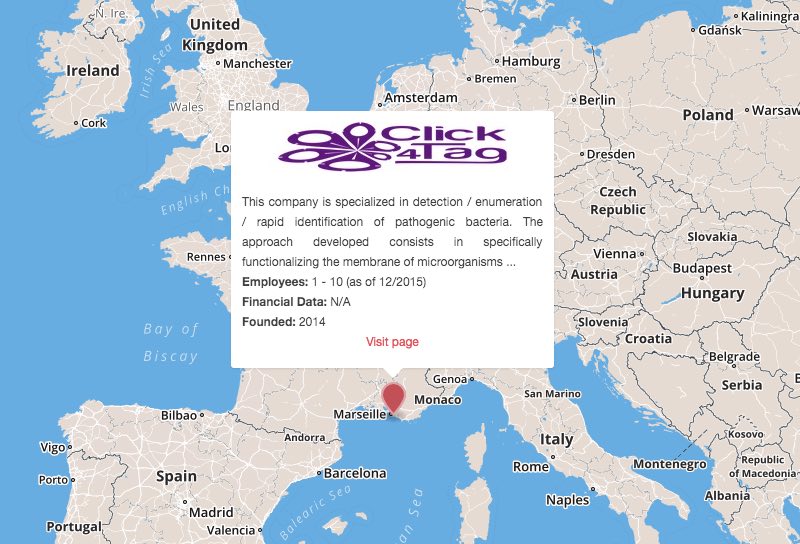Newsletter Signup - Under Article / In Page
"*" indicates required fields
Today we are in the sunny Marseille, on the South coast of France, visiting Click4Tag, a biotech developing a molecular hook to attach to and detect microbial membranes. Its unusual principle has both environmental and medical applications.

Mission: Founded in 2014, Click4Tag is developing a unique technology to detect microorganisms. The company introduces a “molecular hook” into bacterial membranes that can then easily anchored to a fluorescent or magnetic tag of choice via click chemistry.
Click4Tag is currently using the technology for two main applications. One is the detection of water contaminated with living Legionella pneumophila, which according to the US EPA is responsible for the majority of human infections. Currently, the detection of Legionella pneumophila in water takes between 4 and 10 days, which Click4Tag could reduce to just 48 hours.
A second application is the diagnosis of infections in a hospital setting, including Legionnaire’s disease and urinary tract infections as well as testing the pathogen’s susceptibility toantimicrobial drugs. Currently, the gold standard takes about 7 days to reach a diagnosis, which Click4Tag could do within a day.
Comment: With antimicrobial resistance expected to kill more people than cancer by 2050, the need for faster ways of accurately identifying pathogens is becoming particularly relevant. Currently, most hospitals still rely on culture tests, which take several days. Often, patients are treated with broad range antibiotics while waiting for the results, making it more likely that the pathogens develop antibiotic resistance.
Though Click4Tag is definitely not the only one developing faster diagnostic tests, its technology seems to be quite original compared to others, which seem to go after detecting bacterial DNA. Diversifying efforts seems a good strategy to help us cover multiple types of infections and try to reduce the impact of antimicrobial resistance.






